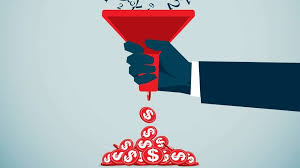The four-letter word that may become synonymous with ‘cash’
Jaspreet Bindra
There is a new four-letter word in town, and it is called Data. Much like the other, more notorious four-letter word it has displaced, it is widely used, has a variety of meanings, and elicits similar feelings of delight and disgust. It is also terribly over-hyped, not very well understood, and is supposed to be the answer to all vexing questions.
Data is also supposed to be the ‘new oil’. Over the last century, the Great World Powers built their hegemonies on the back of oil. Wars were fought, borders redrawn, fortunes built and destroyed, oceans overrun over this commodity. The future world powers, say the pundits, will be created on the back of data. This might very well be true. China brought itself into contention with manufacturing, now it is separating itself from the pack leveraging Data and AI. Putin has famously remarked that “the nation that leads in AI (and so data) will lead the world”. Closer home, the Ambani empire attained its leadership on oil, but is now leveraging data and technology to sustain it over the next generation.
While data is undeniably very powerful, is it the New Oil? Bernard Marr, a prolific technology writer and futurist, does not think so. In a March 2018 Forbes article, he says that oil is a finite resource and is stored in silos and tanks. Data is infinite, with more and more of it being generated every day, and hoarding it has little benefit. Oil requires huge amounts of energy (itself!) and large tankers to transport it; data, on the other hand, can be transported around the world in nanoseconds through fiberoptic cables. The more oil is used, the more of it is lost to heat or wastage; the more data is used, the more insights it gives and the more useful it is. As reserves dwindle, extracting oil becomes more and more difficult (think fracking, tar sands, under sea), but data is becoming more available due to rise in computing power and storage. Oil is oil, it looks the same when extracted; data has massive variety – text, pictures, video, sounds, ideas, facts, stories. Oil extraction degraded the environment; data farms do some of that, but nowhere in comparison.
Therefore, suggests Marr, data should be compared to the newer energy sources – solar, wind or tidal. “There is an abundance of it” he says, “more than we can ever use, and rather than fencing it off and reducing the supply, we should think about how we can make it more widely available to everyone”. Rather than concentrating it in the hands of the few, as it is now.
Data, in my view, is also the ‘new money’? This fact was starkly emphasized to me with the recent Uber IPO. The widely panned prospectus warned that Uber will never make a profit. What the entire prospectus sold, on the other hand, was the platform that Uber was building and the amazing data that this platform was spewing out. This bedrock of data would help it launch a slew of allied services (UberEats, UberFreight, etc.), dominate the logistics industry, and “ignite opportunity by setting the world in motion”.
So, is data the New Money? As we dig our wallets out, will there be cash, credit cards, maybe some bitcoins, and a card or app which represents the dollar value of our personal data? All of us are generating data in every activity we do: walking, talking, watching TV, driving, exercising, working, learning, recuperating. This data is very valuable to companies and can be monetized. However, the choices as well as the rules and regulations around this data are very complex, and so are be the outlets, options and the customers for this data.
I am not alone in speculating that a very interesting consequence of all this will be the emergence of a new class of jobs – that of data managers or brokers. Much like you have wealth managers today, who you trust to manage your finances, data brokers will be people or firms who will manage our data. Perhaps, we will hand over the ‘keys’ to all our personal and professional data to them, with our stated preferences around privacy, earnings, protection, etc. Based on that, these data managers will decide which data of ours to share or sell, to whom, when and to what extent. The data that we monetize in this way will fetch us money – in form of actual dollars, or tradeable crypto currency, or equivalent goods, and the data broker will take a cut of the same.
And, thus, the four-letter word that we will all think of whenever we think of data will be CASH.
(This article was published in my Mint column Tech Whispers on Feb 6, 2020 here: https://www.livemint.com/opinion/columns/the-four-letter-word-that-may-become-synonymous-with-cash-11581008724530.html )


